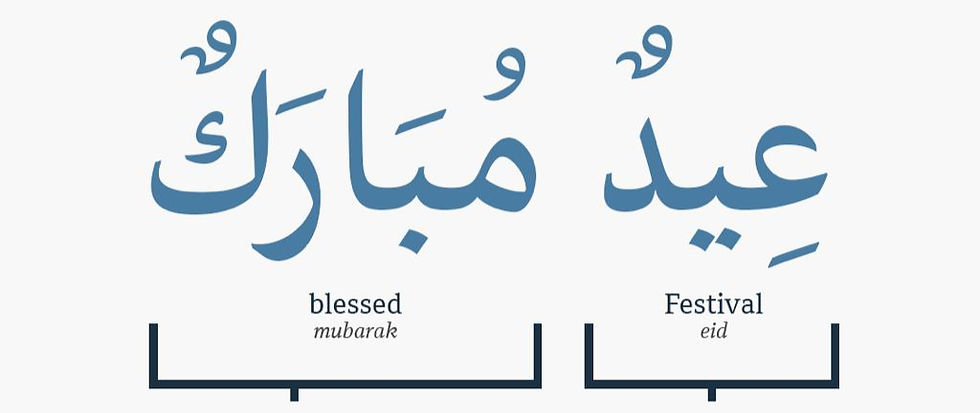Why Study Arabic?
- badracademy
- Jun 24, 2025
- 2 min read

Picture this:
You're sitting in a khutbah, straining to understand the words of the imam. Later, during Salah, you struggle to grasp the meaning of the surahs being recited. Your mind begins to drift. You glance to your left and see an uncle or auntie overcome with emotion, tears flowing as they call upon their Lord.
You wonder: Are we praying the same Salah? Did we hear the same khutbah? Why are they so deeply moved while I feel disconnected?
One of the keys to experiencing such khushoo'—that heartfelt humility and focus in worship—is understanding the words of Allah. After all, how can we truly reflect on the powerful speech of our Creator if we don't understand what it means?
This is why learning Arabic can be such a transformative step.
My name is Adam—once a student at Badr, now a teacher—and I’ve been on this journey too. Back in 2015, I had the incredible opportunity to pray Taraweeh in the Haram. I watched grown men—towering figures—break down in tears as Sheikh Sudais recited. I remember thinking: What are they experiencing that I am missing?
Certainly, khushoo' stems from one’s Emaan and connection with Allah. But how can we nurture that closeness when the Qur’an—Allah’s direct address to us—remains a mystery to so many of us?
These questions ignited my own journey of learning Arabic in 2016. Since then, I’ve never looked back. Arabic is a language of immense depth and richness, containing millions of words. It is a language of poetry, honour, love, and eloquence.
With it, the doors to the treasures of knowledge begin to open. Allah says in the Qur’an:
“Are they equal—those who know and those who do not know? Only those who possess intellect will take heed.”
[Surah Az-Zumar, 39:9]
Imam Ash-Shafi'i once said:
“I stayed with the Bedouins for 20 years, learning their poetry and language.”
This deep understanding of Arabic helped elevate his scholarship and allowed him to develop a distinct methodology in Islamic jurisprudence.
Umar ibn Al-Khattab رضي الله عنه also emphasized:
“Learn Arabic, for it strengthens the intellect and enhances noble character.”
And he said:
“Learn the Arabic language, for it is part of your religion.”
So perhaps the question isn’t “Why should I learn Arabic?”
But rather: “How long will I remain dependent on others to explain my religion to me?”
Let this be an invitation—to connect directly with the Qur’an, the Ahadith, and the wisdom of our scholars, both past and present. To engage with the faith at its source, free of misinterpretations.
Study Arabic—even if just a little. Whether with us at Badr or elsewhere—start somewhere. Take that step toward understanding, and let it bring you closer to your Lord, the Most High ﷻ




Comments